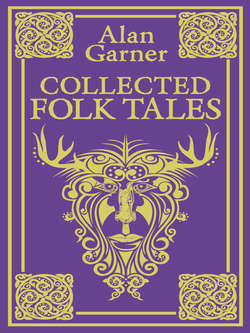Читать книгу Collected Folk Tales - Alan Garner, Alan Garner - Страница 13
Оглавление
n a village in Japan there stood a green willow tree. For centuries the people loved it. In summer it was a place where villagers could meet after work and the heat of the day, and talk there till the moonlight fell through the branches. In winter it was a half-opened umbrella covered with snow.
A young farmer named Heitaro lived near the tree, and he, more than any other, loved the huge willow. It was the first thing he saw on waking, and the last at sleeping. Its shape greeted him when he returned from the fields, and all day he could see its crest. Sometimes he would burn a joss-stick beneath its branches and kneel down and pray.
One day an old man of the village came to Heitaro and explained to him that the people were anxious to build a bridge over the river, and that they particularly wanted the willow tree for timber.
“My dear willow for a bridge?” said Heitaro, covering his face. “Planks below feet? No! Take my own trees first, and spare the willow.”
The villagers accepted Heitaro’s trees, and the willow stood.
One night, while Heitaro was sitting under the tree he saw a beautiful woman close beside him. She stood, and looked at him shyly, as if she wanted to speak.
“Honourable lady,” said Heitaro, “I shall go home. I see you wait for somebody you love, and my presence here is uncouth.”
“He will not come now,” said the woman.
“Has he grown cold?” said Heitaro. “It is terrible when a mock love woos and leaves ashes.”
“He has not grown cold,” she said.
“And yet he does not come?” said Heitaro. “What strangeness is this?”
“He has come! His heart has been always here, here under this willow tree.” And the woman smiled, and left him.
Night after night they met there. The woman’s shyness disappeared, and it seemed that she could not hear too much praise of the willow tree from Heitaro’s lips.
One night he said to her, “Little one, will you be my wife?”
“Yes,” she said. “Call me Higo, and ask no questions, for love of me.”
Heitaro and Higo were married, and they had a son called Chiyodo, and they were happy.
Great news came to the village, and it was not long before Heitaro learnt it. The Emperor wished to build a temple in Kyoto, and his ministers were searching the land for the best of timber. It would be an eternal honour to have given even a fragment of that holy shrine, and the villagers looked around them for a sacrifice that would be worthy.
There was only the willow.
Heitaro offered every tree on his land, and the price of his farm, but only the willow had the quality that was sought.
“Oh, wife, my Higo,” he said that evening, “they are going to cut down the willow. Before I married you I could not have endured it. But, having you, perhaps I shall get over it some day.”
The same night, Heitaro held his wife close for comfort in his sorrow, but he was woken by a loud cry.
“It grows dark!” said Higo. “The room is full of whispers. Are you there, Heitaro? Listen! They are cutting the willow tree!”
“Hush, my love, hush. I am here.”
“They are cutting me! Look how the shadow trembles in the moonlight! They are killing me! Oh, how they cut and tear! The pain, the pain! Put your hands here, and here. Surely the blows cannot fall now!”
Heitaro tried to ease her pain, but nothing he did could heal her.
“Love,” she said, pressing her wet face to his, “I am going now. My body is breaking. Such a love cannot be cut down. Heitaro. Heitaro. My hair is falling through the sky!”
The willow tree lay green and tangled on the ground.
